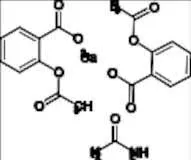- Afrikaans
- Albanian
- Amharic
- Arabic
- Armenian
- Azerbaijani
- Basque
- Belarusian
- Bengali
- Bosnian
- Bulgarian
- Catalan
- Cebuano
- Corsican
- Croatian
- Czech
- Danish
- Dutch
- English
- Esperanto
- Estonian
- Finnish
- French
- Frisian
- Galician
- Georgian
- German
- Greek
- Gujarati
- Haitian Creole
- hausa
- hawaiian
- Hebrew
- Hindi
- Miao
- Hungarian
- Icelandic
- igbo
- Indonesian
- irish
- Italian
- Japanese
- Javanese
- Kannada
- kazakh
- Khmer
- Rwandese
- Korean
- Kurdish
- Kyrgyz
- Lao
- Latin
- Latvian
- Lithuanian
- Luxembourgish
- Macedonian
- Malgashi
- Malay
- Malayalam
- Maltese
- Maori
- Marathi
- Mongolian
- Myanmar
- Nepali
- Norwegian
- Norwegian
- Occitan
- Pashto
- Persian
- Polish
- Portuguese
- Punjabi
- Romanian
- Russian
- Samoan
- Scottish Gaelic
- Serbian
- Sesotho
- Shona
- Sindhi
- Sinhala
- Slovak
- Slovenian
- Somali
- Spanish
- Sundanese
- Swahili
- Swedish
- Tagalog
- Tajik
- Tamil
- Tatar
- Telugu
- Thai
- Turkish
- Turkmen
- Ukrainian
- Urdu
- Uighur
- Uzbek
- Vietnamese
- Welsh
- Bantu
- Yiddish
- Yoruba
- Zulu
Nov . 17, 2024 00:55 Back to list
what kills parasite eggs in humans
What Kills Parasite Eggs in Humans?
Parasites are organisms that live on or inside another organism and benefit at the host's expense. Among the various types of parasites, helminths (worms) and protozoa are significant concerns for human health. One of the critical challenges in managing parasitic infections is dealing with their eggs, which can persist in the environment and lead to reinfection. Understanding what kills parasite eggs in humans is crucial for effective treatment and prevention strategies.
The Life Cycle of Parasites
To comprehend how to eliminate parasite eggs, one must first grasp their life cycle. Many parasites have a complex life cycle that includes a stage where they produce eggs. For instance, intestinal worms such as Ascaris lumbricoides and hookworms produce eggs that are excreted in human feces and can contaminate soil or water. When humans consume contaminated food or water, these eggs hatch, and the cycle continues.
Physical Removal
The first line of defense against parasite eggs is physical removal. Good hygiene practices, including thorough washing of hands and food, can significantly reduce the likelihood of ingestion of eggs. Boiling water, for example, can effectively kill many types of parasite eggs. Cooking food at high temperatures can also eliminate any parasites or their eggs present, making it an essential step in preventing infection.
Chemical Agents
Various chemicals and medications are effective against parasite eggs. Anthelmintic drugs are specifically designed to target and eliminate helminths at different life stages, including their eggs. Medications such as albendazole, mebendazole, and praziquantel work by disrupting the metabolism and cellular integrity of the parasites, leading to their death. These drugs are crucial not only for treating existing infections but also for breaking the life cycle of parasites by targeting their eggs.
Environmental Considerations
what kills parasite eggs in humans

While individual treatment is vital, addressing the broader environmental factors plays a critical role in controlling parasitic infections. Sanitation is paramount – ensuring proper sewage disposal and practicing good hygiene can significantly reduce the contamination of soil and water with parasite eggs. For example, studies have shown that improving sanitation in communities dramatically decreases the prevalence of intestinal parasites.
In addition, certain environmental conditions, such as extreme temperatures, can kill parasite eggs. Studies suggest that freezing can be effective against some types of parasite eggs, while desiccation (drying out) can also contribute to their elimination. Therefore, maintaining cleanliness and proper waste management in our surroundings is crucial for preventing the spread of parasites.
Herbal and Natural Remedies
Some natural remedies have shown promise in killing or expelling parasite eggs. Certain herbs, such as wormwood, black walnut, and cloves, have been traditionally used for their antiparasitic properties. These natural alternatives often work synergistically to enhance the body’s ability to fight off parasitic infections and may help in eliminating eggs.
The Role of the Immune System
An often-overlooked aspect of parasitic infections is the human immune system's role in combating them. A robust immune response can help eliminate parasites, including their eggs. Maintaining a healthy lifestyle through proper nutrition, regular exercise, and adequate sleep can strengthen the immune system and enhance its ability to fend off infections.
Conclusion
Dealing with parasitic infections, particularly the management of their eggs, requires a multifaceted approach. Physical removal, chemical treatments, sanitation practices, and natural remedies all play essential roles in addressing this public health concern. By understanding what kills parasite eggs in humans and implementing a combination of these strategies, we can significantly reduce the prevalence of parasitic infections and improve overall health outcomes. Awareness and education are critical components in this fight, as they empower individuals and communities to take proactive steps in protecting themselves from parasites.
-
Guide to Oxytetracycline Injection
NewsMar.27,2025
-
Guide to Colistin Sulphate
NewsMar.27,2025
-
Gentamicin Sulfate: Uses, Price, And Key Information
NewsMar.27,2025
-
Enrofloxacin Injection: Uses, Price, And Supplier Information
NewsMar.27,2025
-
Dexamethasone Sodium Phosphate Injection: Uses, Price, And Key Information
NewsMar.27,2025
-
Albendazole Tablet: Uses, Dosage, Cost, And Key Information
NewsMar.27,2025













